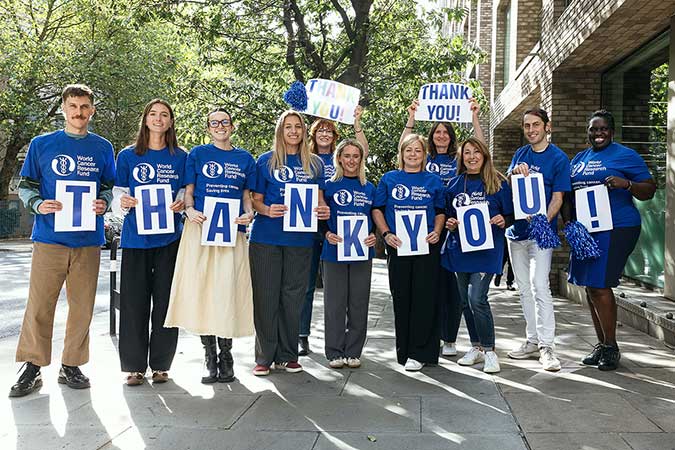More colorectal cancer research
Cancer-related fatigue in colorectal cancer survivors
This study aims to unravel the biological mechanisms linking sedentary behaviour and activity with fatigue in colorectal cancer survivors
Identifying the influence of the microbiome and metabolome on intestinal stem cells
We aim to find out if bacteria affect the behaviour of normal and cancerous intestinal stem cells.
The Butyrate paradox, MicroRNAs and colorectal cancer
A study of microRNAs in dietary reduction of cancer risk in Familial Adenomatous Polyposis patients, funded by WCRF International
Latest research-related news and blogs

Our reaction to the launch of the US dietary guidelines 2025-2030
We give our verdict on the new dietary guidance released by the US administration on 7 January 2026.

Thank you for your support in 2025!
It’s been a busy year for World Cancer Research Fund as we continue to fund pioneering new research into cancer prevention. Here’s how your generous donations have made a difference in 2025

Donor power in action: 19 new research awards taking on cancer before and after diagnosis
We’ve awarded 19 new research grants, investing more than £5m to help people avoid cancer and live better and longer after a diagnosis
More physical activity-related research
Impact of dietary energy restriction and exercise on prostate cancer patients
This study will use a newly method to compare the impact of eating less food versus daily exercise on muscle, prostate, and prostate tumour growth responses
Investigating the role of lifestyle in neuroendocrine tumours
Neuroendocrine tumors are rare tumors that come from hormone-producing cells in the body. This study aims to investigate the relationship between lifestyle and the development of these tumours
Does exercise during treatment help patients survive cancer?
Studying the molecular mechanisms underlying the protective effect of preoperative exercise in patients with gastro-oesophageal cancer